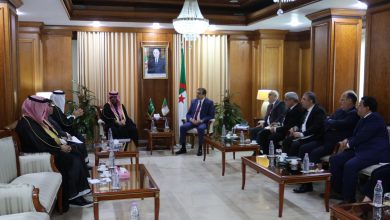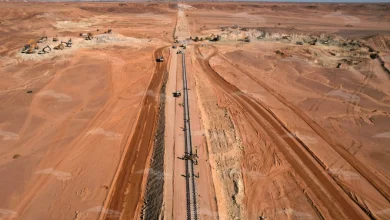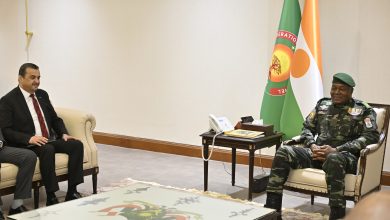In a speech delivered during the 28th edition of Energy Day, coinciding with Science Day under the slogan “Towards a More Flexible Energy Model 2035,” significant advancements were outlined. The event saw the presence of the Minister of Environment and Renewable Energies, Fazia Dahlab, Minister of Agriculture and Rural Development, Youssef Cherfa, the Presidential Advisor on Energy, Mines, and the Environment, Amin Maazouzi, along with other key figures including the Energy Efficiency and Renewable Energies Commissioner, Nouredine Yassaa, and the CEO of Sonelgaz, Mourad Lejail.
Mr. Arkab emphasized that the energy sector is currently designing a national energy model with the contribution of experts from all energy-consuming sectors. This model will facilitate the creation of a prospective vision for various future scenarios, particularly focusing on energy transition through the integration of renewable energies into the energy mix and enhancing energy efficiency in major consuming sectors like housing, transport, and industry.
The outcomes of this energy model will help establish a medium to long-term roadmap aimed at ensuring energy security and determining the most suitable approach for a “smooth” energy transition that takes into account all natural potential and national infrastructure. It also aims to define measures concerning energy efficiency by incorporating innovative solutions.
Furthermore, the minister underscored the “significant” importance his sector places on developing clean hydrogen technology. This includes initiating a comprehensive action plan starting with setting the appropriate regulatory, standard, and institutional framework, developing human capital, outlining incentivizing measures, and enhancing international cooperation for technology transfer.
In this context, ongoing pilot projects for mastering the hydrogen production value chain were mentioned, along with efforts in partnership with Europe—particularly with Germany, Austria, and Italy—to materialize the Southern Hydrogen Corridor project. This ambitious project requires collaboration with major European companies alongside Sonatrach to connect the continents, aiming to support the region’s energy security.
Minister Dahlab highlighted her sector’s commitment to adopting sustainability in economic activities through digitization and fostering emerging youth projects in areas related to renewable energies, climate change, water, mobility, and biotechnology. She emphasized the necessity of utilizing new types of energy and distribution technologies by developing smart systems that can reduce carbon emissions. The strategy relies heavily on supporting innovation, expanding research fields, encouraging international cooperation with leading countries in renewable energy and energy efficiency, and integrating with other economic sectors like transport, industry, housing, and agriculture to create permanent jobs and generate added value.
During the event, Professor Chemseddine Chitour, who supervised the organization, delivered a statement stressing the importance of diversifying energy sources in response to the risks posed by climate change, such as rising sea levels and temperatures. He called for intensified efforts to educate citizens and encourage them to adopt “environmental citizenship,” particularly focusing on the youth in educational institutions.
For more information, visit dzwatch.dz.
National Energy Model 2035




